Unlock the Secrets to Smooth-Flowing Drains with These Tips!
You may take your household drains for granted, but few things are more stressful and inconvenient than drain clogs and slow drain. Smooth-flowing drains are essential for a well-functioning and hygienic home.
Ready to unlock the secrets to a smooth-flowing drains with these tips from the experts at Bell Brothers.
What Causes Clogged Drains?
Preventing clogs begins with knowing how they happen to begin with. Typically, the causes of clogged drains are everyday debris, such as hair, grease, soap scum, food particles, and foreign objects.
Tips to Address Common Drain Clogs
Protect Drains with Hair Catchers
One of the most common causes of bathroom drain clogs is a buildup of hair. Hair is notoriously difficult to prevent, and it combines with soap scum to create thick and stubborn clogs. Hair catchers on your drain can make a big difference in preventing hair from ending up down your drain, leading to clogs. Hair catchers trap hair before it can enter your drain, but you have to clean them regularly for them to do their job.
Use a Mesh Strainer in the Kitchen Sink
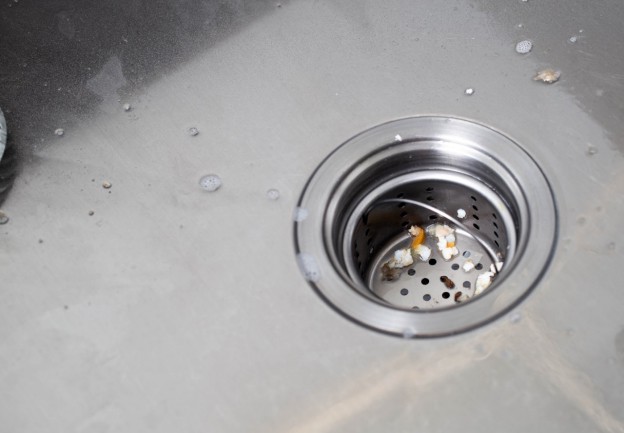
Don’t Pour Grease in Your Drains
Grease from cooking may seem like it should go down your drain, but this is one of the worst causes of clogs. When you pour hot grease down a drain, it only starts as a liquid. It will cool and solidify, creating a sticky buildup that captures other debris and creates a stubborn blockage. Take care to dispose of your grease in a heat-proof container, then dispose of it in the trash when it solidifies. You could also run hot water through your drains after you wash or rinse dishes to help everything flow down.
Use a Natural Drain Cleaner
Instead of reaching for chemical drain cleaners, which can be harsh for your pipes, rely on a natural and eco-friendly method with household supplies. Baking soda and vinegar are gentle, but the chemical reaction that takes place between the two can help clear debris in your drain. Simply pour half a cup of baking soda down the drain and follow with a half of a cup of vinegar. Let the solution sit for about 15 minutes, then flush with hot water.
Get Household Plungers
Watch Out for Tree Roots
Outdoor drainage systems can end up with problems from wandering tree roots. More than a simple clog, these tree roots can significantly damage your pipes and cause expensive repairs. If you’re concerned about your tree roots and outdoor drainage, speak with a landscaper about your options to ensure your trees are far enough away from your drainage system. This proactive measure can go a long way toward preventing costly repairs in the future.
Tips for All Your Drains
Any drain can get a clog, but you may need to take extra steps to protect your drains from the common causes of clogs in specific rooms.
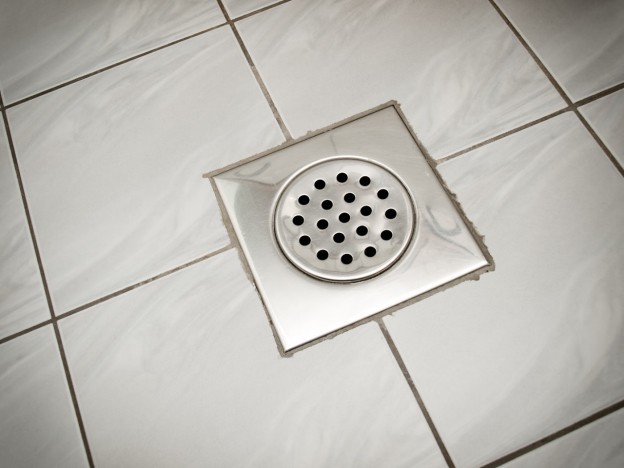
- Install a lint trap:Install a lint trap on your drainage hose if you have your washing machine in the bathroom to avoid loose lint from going down your drains.
- Clean your drains:Remove hair and debris from your bathroom drains on a monthly basis to prevent them from clogging your drains.
For your kitchen drain:
- Run cold water for the garbage disposal:Don’t pour grease into your garbage disposal, but it’s inevitable that some grease will end up mixed in with your food scraps. Run cold water to solidify grease and allow it to be broken into smaller pieces to go down the drain more easily.
- Scrape dishes thoroughly:Remove as much excess food from plates and cookware before you wash your dishes to minimize the debris that goes into your drain.
For your toilets:
- Only flush toilet paper and waste:Remind everyone in your household to avoid flushing items like cotton balls, makeup sponges, or sanitary products down the toilet. These items are not flushable and can lead to significant toilet clogs.
- Educate your family:Have a family meeting to discuss what items can go into the toilet and be careful about children playing in the bathroom, which can lead to toys or other items going into your toilet.
How to Deal with Stubborn Clogs
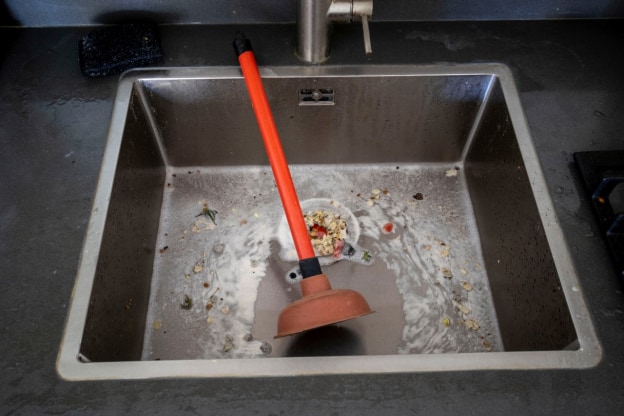
No matter how much you try, it’s possible that you’ll have some clogs from time to time. When you get a stubborn clog, you have to know what to do to fix it as soon as possible.
For many clogs, a mixture of baking soda and vinegar may be enough to break up the clog and get your drains flowing. You could also try pouring boiling water into your drain, which will also help if you have grease trapping food debris.
Some clogs may require a plumbing snake or auger, which is a tool designed to break through and remove stubborn clogs. You can pick up a snake or auger at a local hardware store. You simply insert the snake into the drain and rotate it to dislodge the obstruction. This is good for clogs that are deep in your plumbing system or objects you won’t be able to dissolve.
Though it may be tempting, avoid reaching for chemical drain cleaners. They can break up clogs quickly, but they can damage your plumbing – especially with repeated use. They also pose a potential health risk.
The Hidden Hazards of Clogs
Clogged drains are more than just a nuisance, which is why you should never leave them untreated for long. Here are some hazards of having clogs:
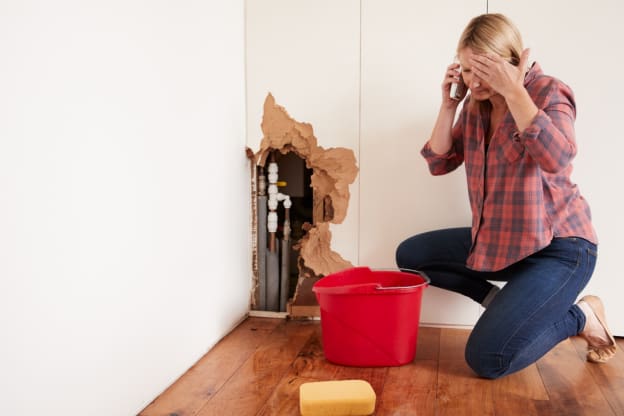
- Damage to your plumbing:Clogged drains increase the pressure inside your pipes, which can cause your pipe to burst. You could have water damage and a health hazard in your home, as well as a last-minute call to a plumber and plenty of expensive plumbing repairs to your plumbing or walls and flooring.
- Foul odors:Clogs trap water and waste materials in your drain, including bacteria that can lead to foul odors. No matter how much you clean and disinfect, you may not be able to clear those odors without fixing the clog.
- Pests:When water stagnates in a drain, it can attract everything from flies and mosquitoes to roaches and rodents. Some of these pests carry disease and can make your home dangerous and unsanitary.
- Slow drainage:Clogged drains can cause water to drain slowly, allowing mold and bacteria to grow. This also attracts pests, as mentioned, and can make your cooking or cleaning routine inconvenient.
- Environmental impact:Clogged drains can cause overflow that leaves pollutants in the local environment and ecosystems.
- Health hazards:Clogged drains can lead to health hazards like mold and mildew. You can end up with respiratory problems, allergic reactions, and more.
- Expensive repairs:Clogs don’t resolve on their own. If you leave a clogged drain, you could end up with bigger and more expensive problems in your plumbing. It’s better to fix clogs when they’re minor and simple.
Schedule Plumbing Maintenance
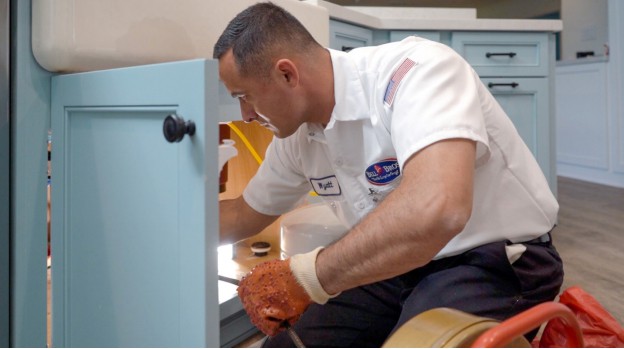
Once you have all your drains flowing freely, keep them that way with regular plumbing inspections and maintenance. Taking care of your plumbing system with routine maintenance can help you fix small problems before they become a major headache and expense.
Some of the tasks included in plumbing maintenance include:
- Inspecting the water pressure to avoid premature wear and tear.
- Checking for leaks to prevent water damage and mold growth.
- Flushing your water heater to prevent sediment buildup.
- Checking pipes for corrosion or loose fittings.
- Inspecting sewer lines for blockages or cracks.
While you can do some of this work yourself, hiring a professional plumbing service to perform maintenance gives you the benefit of an experienced professional inspecting your plumbing and identifying problems that should be fixed early.
Get Your Drains Flowing
Your drains are a vital component of your home’s function. If you have recurrent clogs or slow drains, it’s important to get them fixed as soon as possible. If you need drain cleaning or other plumbing repairs, contact the pros at Bell Brothers and schedule your appointment!

